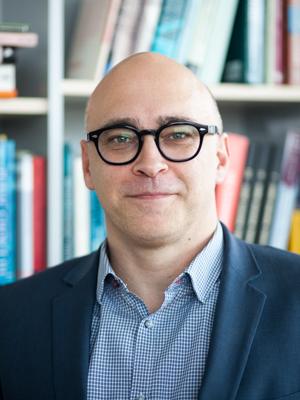Global Augmented State Space Error Correction Model (FWF-Projekt Nr. I-5571)
GLASS – Global Augmented State Space Error Correction Model
Projektleitung
Projektmitarbeiter:innen
Christian Zwatz, Dietmar Bauer
Laufzeit
2022-2025
Förderung
Fonds zur Förderung der wissenschaftlichen Forschung (FWF)
Wider research context/theoretical framework
GLASS deals with developing tools to combine and extend two prominent model classes for multicountry, -regional or -sectoral models, which have gained increasing prominence due to (i) increased economic and financial integration, (ii) the increased availability of large-scale (multi-country) data sets and (iii) advances in high-dimensional econometric modelling. Modelling advances have occurred in both economic theory-driven as well as in reduced form time series models.
Hypotheses/research questions/objectives
The project (i) explores the linkages between and (ii) extends two prominent model classes for highdimensional modelling: (semi-structural) global vector autoregressive (GVAR) and (reduced form) generalized dynamic factor models (GDFMs). GVAR models achieve complexity reduction by imposing substantial restrictions on the impacts of the variables of other countries on the dynamics in any considered country. The corresponding restrictions rely upon – potentially unrealistic – exogeneity restrictions and furthermore limit the flexibility of long-run (cointegration) modelling. GDFMs are very efficient in complexity reduction (i.e., in tackling the curse of dimensionality), but suffer with respect to interpretability and the potential of structural analysis from their reduced form character and the reliance upon statistically identified common factors.
Approach/methods
GLASS allows to put the two model classes into a common framework by assuming that all variables are jointly generated by a vector moving average (VARMA) process, which also provides an important extension of the GVAR model class. The project develops and uses appropriate Global Augmented State Space (GLASS) models to (i) address open issues with respect to exogeneity and cointegration properties in GVAR-type models in an extended model-class that is invariant to linear transformations and (ii) to investigate in detail the relationships between (VARMA) GDFMs and GLASS-type models.The structure of state space models with the latent (potentially low-dimensional) state vector describing the dynamics of the observables is very similar to the structure of GDFMs; providing the
entry point for studying the relationships. A key issue to be addressed to study the links across model classes is a detailed understanding of both finite-N (in GVAR settings) as well as N-asymptotic (GDFMs) properties and their interrelationships.
Level of originality/innovation
Based upon the structure theory, GLASS will develop de novo estimation and inference tools allowing for structural analysis in high-dimensional cointegrated systems. The developed procedures and tools will be made available to the public by means of well-tested and robust code. GLASS is a highdimensional and structural extension of our earlier project EICIP.
Primary researchers involved
Prof. Dr. Dietmar Bauer, Bielefeld University
Prof. Dr. Martin Wagner, Klagenfurt University
Kooperationspartner:innen
WEAVE – Joint Project mit Universität Bielefeld / Deutsche Forschungsgemeinschaft (DFG); Prof. Dietmar Bauer, Universität Bielefeld
Unterstützt durch Fördergelder des Wissenschaftsfonds (FWF): Projektnummer: I-5571
Publikationen und Downloads
Veranstaltungen
Vorträge
Quicklinks
Plattformen

Informationen für
Adresse
Universitätsstraße 65-67
9020 Klagenfurt am Wörthersee
Austria
+43 463 2700
uni [at] aau [dot] at
www.aau.at
Campus Plan













